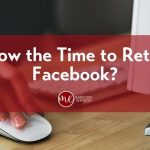Facebook tests removing organic Page posts from News Feed
Pages’ unpaid posts will be limited to the new Explore Feed as part of the test.

Facebook’s News Feed has been largely pay-to-play for Pages for years. Now the social network is exploring whether to make it completely so.
Last week Facebook officially rolled out its Explore Feed for people to find posts from Pages they aren’t connected to. Now Facebook is testing whether to make that Pages-only feed the only place for people to find posts from Pages, including the ones they are connected to.
In the test, Facebook will cordon off the traditional News Feed as the exclusive domain of posts from people’s friends and family members — i.e., non-Page accounts — and will limit Pages’ organic posts to the Explore Feed. A Facebook spokesperson confirmed the test, which was initially reported by Filip Struhárik, a journalist at Slovakian newspaper Denník N. The spokesperson did not immediately respond to a question of whether both the non-Pages and Pages-only feeds will carry ads.
“With all of the possible stories in each person’s feed, we always work to connect people with the posts they find most meaningful. People have told us they want an easier way to see posts from friends and family, so we are testing two separate feeds, one as a dedicated space with posts from friends and family and another as a dedicated space for posts from Pages. To understand if people like these two different spaces, we will test a few things, such as how people engage with videos and other types of posts. These tests will start in Sri Lanka, Bolivia, Slovakia, Serbia, Guatemala, and Cambodia. We have no current plans to roll this out globally,” said the spokesperson in an emailed statement.
That this is only a test and that Facebook has “no current plans to roll this out globally” may be cold comfort to brands and other Page owners that have come to rely on Facebook for website traffic and video viewership. Then again, it may be less infuriating because of its inevitability.
Since at least 2013, Pages’ organic reach on Facebook has been on the decline. Its death knell would not be a surprise. (For what it’s worth, if the test is made official, then Pages’ organic reach won’t necessarily go away entirely, though that assumes that people will actually check out the Pages-only Explore Feed).
First, the real estate in Facebook’s News Feed is not as infinite as it seems. If Facebook does not ensure that the highest-ranking posts in a person’s feed are the ones most likely to appeal to them, that person may not view as many — or any — posts in their feed and, as a result, not see any of the ads that Facebook sells either. The more posts people and Pages publish to Facebook, the more crowded people’s News Feeds become, the more pressure on Facebook’s algorithm to pick the posts most likely to appeal to its users. To address the issue, Facebook has gravitated to favoring the posts from a person’s friends and family members over those published directly by a Page, as evidenced by last year’s News Feed algorithm change that made Pages’ organic distribution more dependent on shares.
Second, Facebook has a business to run. That business is predicated on capturing people’s attention and capitalizing on it. Yes, Pages’ organic posts can capture people’s attention. And yes, Facebook has been able to capitalize on that attention by running ads above or below those unpaid posts or getting Pages to pay to promote the posts to more people. But Pages’ organic posts do not directly make Facebook money.
Third, Page owners are not opposed to paying Facebook to promote their posts. For years, brands have shrugged at Facebook’s organic reach reductions and opened their wallets wider. Even publishers have adopted this arrangement. This acquiescence would make it hard for Page owners to object now.
Fourth, Facebook needs to address its ad load issue in order to protect its future revenue growth. For more than a year, Facebook execs have said that the company’s skyrocketing revenue growth trajectory will start to fall back to earth this year as it maximizes the ratio of ads to organic posts in people’s News Feeds. Facebook has a few ways it can tackle the issue, such as syndicating its ads to other places, like Instagram, Messenger and third-party sites and apps through its ad network. But it can also compel advertisers to pay more for the ads that Facebook is able to squeeze into people’s feeds. Making ads the only way to appear in people’s News Feeds could do the trick.
Marketing Land – Internet Marketing News, Strategies & Tips
(33)













